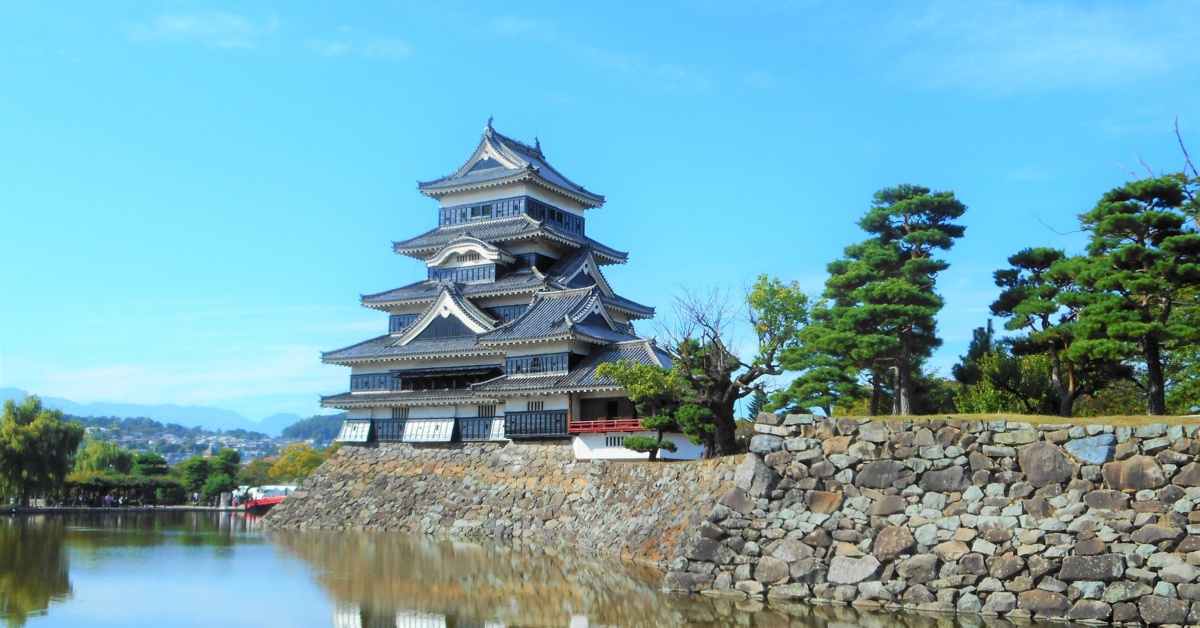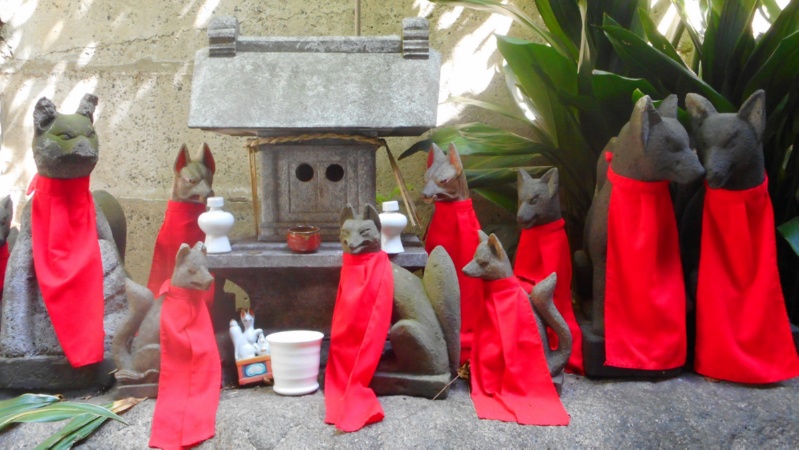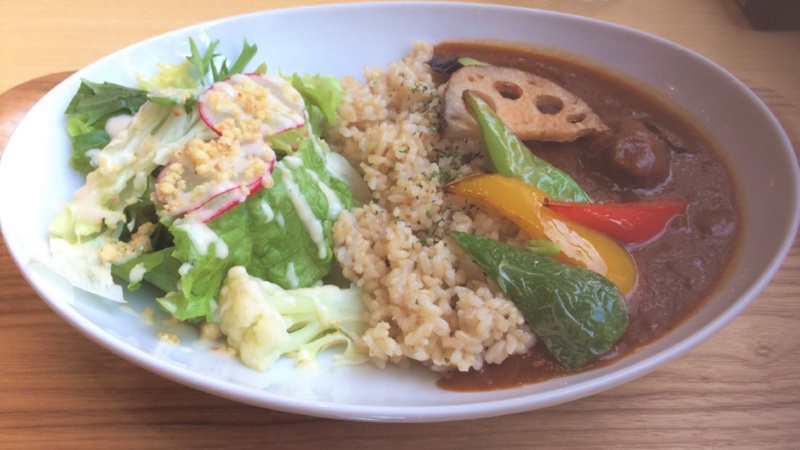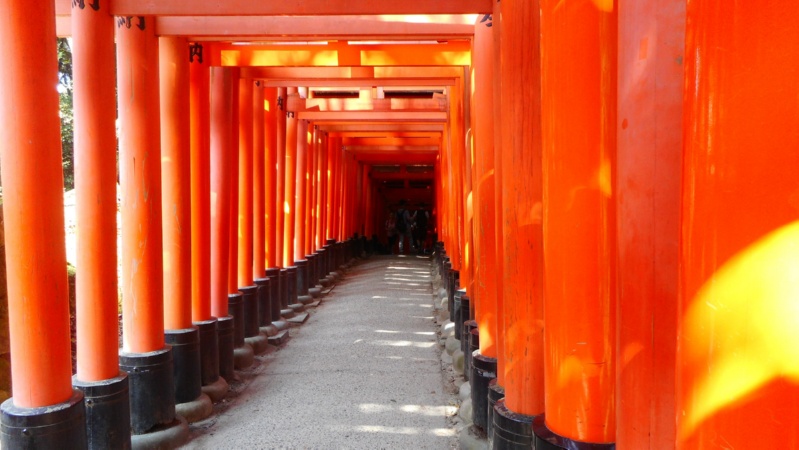For many travelers, Japan still captures the imagination. The country is known for its technological feats, dazzling neon advertisements, beautiful landscapes, temples, and delicious cuisine. Japan is not an immediately obvious choice for vegans, because fish and other sea creatures are used in almost all dishes. I will be honest, if you visit Japan as a vegan, life s not always easy. However, even as a vegan, Japan is well worth a visit. Read below what you should look out for so that you can enjoy everything Japan has to offer without 'starving'.
What does make Japan so interesting?
There are plenty of reasons to visit Japan. The country has a rich history and age-old traditions. Despite Japan's technological advances, the Japanese people greatly value ancient traditions and customs. This is obvious, for example, in Shintoism, a religion that originated in Japan. It is actually more of a folk belief system than a religion and revolves honoring spirits. You can see Shinto shrines all over Japan and recognize them by the large orange (vermillion) gates (these are called torii).
What you definitely need to include in your trip to Japan:
- The countless Buddhist and Shinto temples in Kyoto
- One of Japan's beautiful ancient castles, like the one in Matsumoto, Matsuyama, or Himeji
- Tokyo's Akihabara district (known for its electronics and Manga scene) and Shinjuku district (neon-packed nightlife)
- Mount Fuji (the iconic snow-capped volcano, a few hours drive from Tokyo)
- Hiroshima and/or Nagasaki to experience the impact of an atomic bomb
- The Japanese Alps with a visit to an Onsen (thermal bath) and an overnight stay in a Ryokan, a traditional Japanese inn where you sleep on tatami mats and walk around in a Yukata (traditional Japanese garment)
Things to keep in mind
The Japanese people are generally very friendly and hospitable. Unfortunately the use of animals products, especially fish, is deeply rooted in Japanese cuisine. You will find the latter in almost all dishes in Japanese cuisine and in various forms:
- Fish as the main course or in sushi
- Fish stock (dashi) used to cook vegetables and rice
- Fish flakes (bonito) used as a garnish and seasoning
- Fish powder used as a flavor enhancer
Because you often can't see whether there is fish in your dish, you will always have to ask when you do eat out. Read more about How to travel as a vegan, to make your trip more enjoyable.
How do you make sure you don't 'starve'?
These days, more and more restaurants in Japan offer vegan food or are even completely vegan. You will especially have a larger choice of vegan food in Tokyo, Kyoto, and Osaka. If you have Happycow at hand you can always find something. Keep an eye on the opening times though, because many restaurants are only open for dinner.
At restaurants that do not advertise they serve vegan food, the chance you will find something vegan is very small. If you are lucky you may find a vegetable dish, but always ask they prepare it with dashi or bonito (both contain fish). Or fried together with fish or meat. One time I was out with friends and ordered french fries, just about the only dish that I thought would not include dead animals. When the fries were served, I found several shrimp in my fries. They must have been floating in the same deep-fryer!!
In general, a Japanese chef will not appreciate it if you ask to make a dish vegan. These requests are often taken as an insult. After all, the cook knows what the best dish is for you and the dish they offer you is the best they can make. However, do try. You may find a little more relaxed chef after all. In Indian restaurants, the cook usually doesn't mind as much to change the dish to your liking. If there is an Indian restaurant nearby, there is a good change you will be able to find a decent vegan meal (just watch for ghee (clarified butter)).
Supermarkets will save you
Go outside of the 3 cities mentioned above, and you are mostly dependent on what you can buy in the supermarket. Fortunately, there are plenty of those in Japan: on every street, you will find a 7-Eleven, Family Mart, or Lawson shop. Note: even in these stores most things are not vegan, but the following items often are:
- Rice balls (onigiri) without filling or with a filling of pickled plum or seaweed
- Salted soybeans (edamame) in a bag
- Rice in a tofu bag (inarizushi)
- Ready-made noodles (but only a few)
- Fresh fruit
- Nuts
- Salads with carrot, corn, lettuce, etc.
You can't always tell whether something is vegan from reading the label on the packaging (if you have the ability to figure out the Japanese characters, to begin with). Fish is not considered an allergen in Japan and does not need to be declared as such. When they use fish powder as a flavor enhancer, they often do not indicate at all in the ingredients. Fortunately, there are vegans enthusiasts who keep track of which products are vegan. This great website is a big help: isitveganjapan.com
Preparation in the key to a happy holiday
It is a challenge to be vegan in Japan, but traveling around is certainly worth the effort. If you stay in the big cities such as Tokyo and Kyoto, you'll be fine and you can eat delicious vegan food. If you want to see more of the country, prepare well. Keep in mind that you can't always eat what you want and that you will have to eat supermarket food more often. You will probably make a few mistakes too. That said, enjoy Japan, because it is a beautiful country that is absolutely worth visiting in my view!









